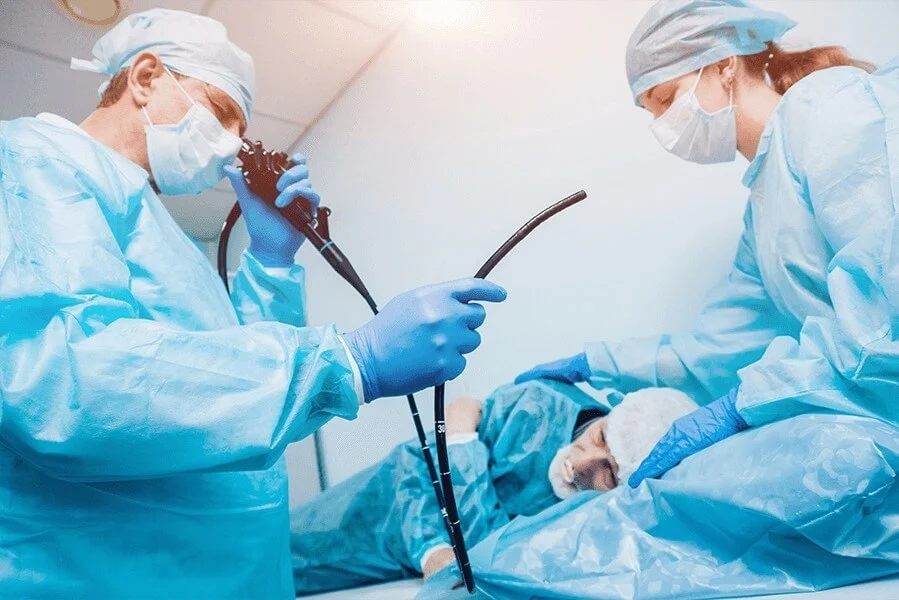Endoscopic Ultrasound in Lubbock, TX
What is an endoscopic ultrasound?
An endoscopic ultrasound (EUS) is a procedure used to look in detail at your gastrointestinal tract, although it is also useful for examining other organs like the lungs, pancreas, gall bladder, liver, spleen, adrenal gland, ovaries, and uterus.
It produces higher quality images than standard ultrasound because the sound waves are not traveling through your skin and muscle layer to your organs. Instead, your physician will insert a specially equipped endoscope via either your throat (for an upper GI EUS) or your rectum (for a lower GI EUS).
The high-quality images produced by a EUS make it ideal when very detailed images are required, or when a secondary procedure – such as cyst drainage – needs to be carried out. To learn more about an endoscopic ultrasound in Lubbock, TX, contact your nearest Lubbock Digestive Disease Associates location.

Who needs an endoscopic ultrasound?
An endoscopic ultrasound may be recommended to diagnose or treat gastrointestinal issues you may have. It’s a useful procedure for:
- Obtaining biopsies (tissue samples than can be examined under a microscope)
- Draining cysts
- Evaluating cancerous growths
- Examining abnormalities
- Locating stones in the bile duct or gall bladder
A EUS could also be used for other purposes, like examining the respiratory system. If you think you would benefit from an endoscopic ultrasound, request a consultation with one of our Lubbock, TX providers today.
How should I prepare for an EUS?
Your Lubbock Digestive Disease Associates provider will discuss specific instructions with you based on your medical conditions. Usually, you will be asked not to eat or drink for several hours beforehand, and you may be asked to stop certain medications before the procedure too. Depending on the area that will be scanned, you may be given laxatives, an enema, or a special diet to follow before your EUS.
A EUS is a day procedure and you will be able to return home afterward, although if you have been given sedation, you’ll be asked to wait until it’s worn off. If you have had an upper GI endoscopic ultrasound, you may have a sore throat, while a lower GI endoscopic ultrasound may make you feel bloated for a while.
